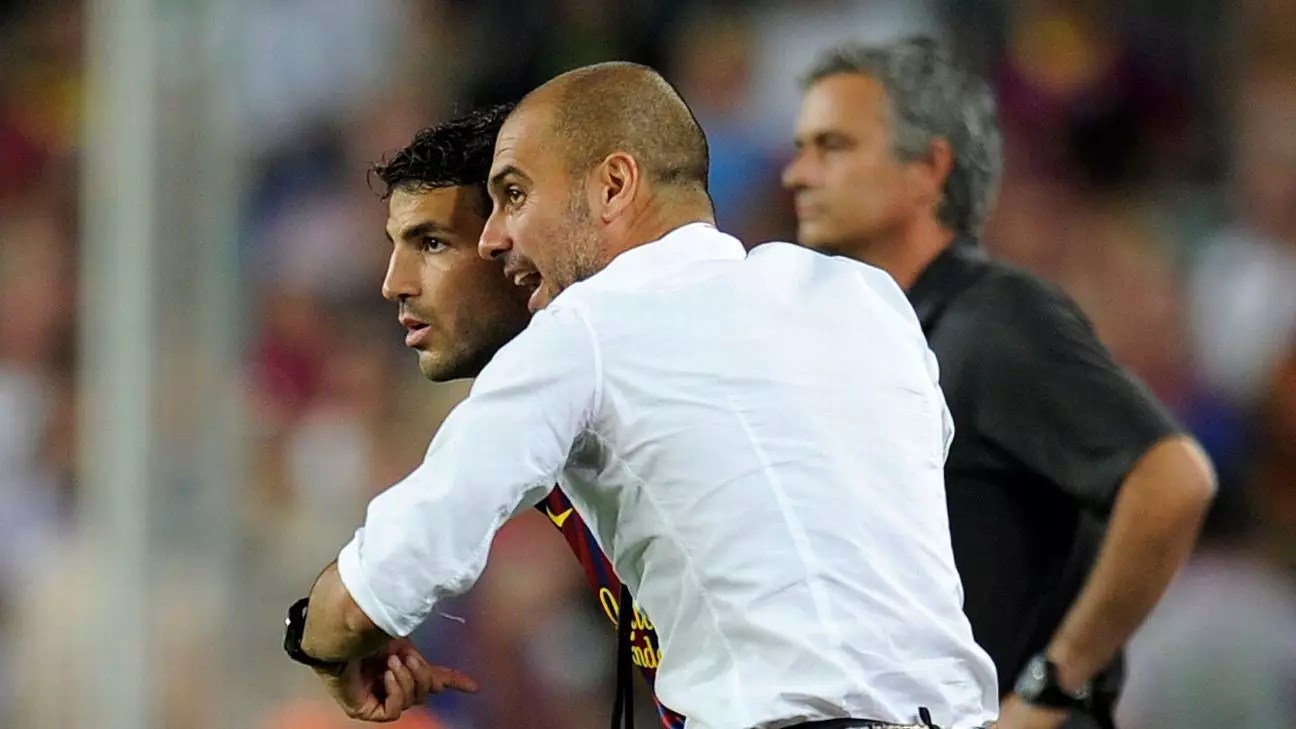Cesc Fàbregas, the Spanish maestro who dazzled football fans across Europe, is now carving a new path as a manager. At 37, he finds himself at the helm of Serie A club Como, where he aims to translate his rich experiences as a player into meaningful coaching strategies. His journey is marked not only by his illustrious playing career at clubs like Arsenal, Barcelona, and Chelsea but also by the invaluable lessons learned from some of the greatest coaches in football history: Arsène Wenger, José Mourinho, and Pep Guardiola.
When reflecting on his career, Fàbregas emphasizes Pep Guardiola’s influence as the most impactful. During their time together at Barcelona in the 2011-2012 season, Fàbregas was immersed in Guardiola’s unique tactical approach. Guardiola’s relentless preparation and deep analysis of opponents left a significant mark on the young midfielder. Fàbregas acknowledges, “Tactically, Pep is the one that I learned the most from.” This sentiment speaks volumes about the meticulous nature of Guardiola’s coaching style, where understanding the nuances of the game transforms players into thinkers on the pitch.
Fàbregas’s take on coaching now reflects this learning. He strives to instill a similar awareness in his players at Como. By encouraging them to identify what’s happening in real-time on the field, he aims to foster a more proactive mindset among his team. This shift from merely executing instructions to understanding the game enhances not only individual performance but also the collective effectiveness of the team.
In stark contrast to Guardiola’s tactical focus, Fàbregas cites Arsène Wenger as a master of patience. Having played under Wenger for eight seasons at Arsenal, Fàbregas learned the value of giving players time to develop. “Arsène was a gentleman,” he notes, highlighting the importance of empathy and understanding in coaching. Unlike the current era, where the pressure to deliver results can lead managers to adopt a win-at-all-costs mentality, Fàbregas believes in cultivating young talent—even when patience is required.
This philosophy is especially relevant in today’s fast-paced football landscape, where managerial roles often come under scrutiny after just a handful of games. Fàbregas emphasizes this point when discussing his approach to working with young players at Como, recognizing that talent requires time and a tailored approach to flourish. By incorporating more training efforts and extending time for development, Fàbregas aims to replicate Wenger’s philosophy in nurturing his players.
José Mourinho’s coaching style, marked by decisiveness and mental acuity, also left an indelible impression on Fàbregas. The former Chelsea midfielder recalls their time together during the successful 2014-2015 season, describing Mourinho as “very brave.” This bravery, particularly in decision-making and player management, resonates with Fàbregas, who cites Mourinho’s ability to read the room and adapt strategies as exemplary.
Mourinho’s willingness to make bold changes, including substituting players at halftime, highlighted his instinctive grasp of the game’s flow. Fàbregas admires how Mourinho’s intuition allowed him to tap into the mental states of his players and make decisions that could turn the tide during crucial matches. This blend of courage and psychological insight is something Fàbregas aspires to emulate as he builds his own identity as a manager.
As Cesc Fàbregas transitions from a celebrated playing career to a managerial role, the lessons imparted by Wenger, Mourinho, and Guardiola are foundational to his philosophy. He understands that success in football isn’t merely about immediate results but encompasses nurturing talent, understanding the intricacies of the game, and making timely decisions. With Como, Fàbregas embarks on a new journey that brings together the essence of his diverse experiences, aiming to leave a lasting impact as both a coach and a mentor for aspiring footballers. In doing so, he not only honors the teachings of his past but also contributes to the future of the sport he loves.


Leave a Reply